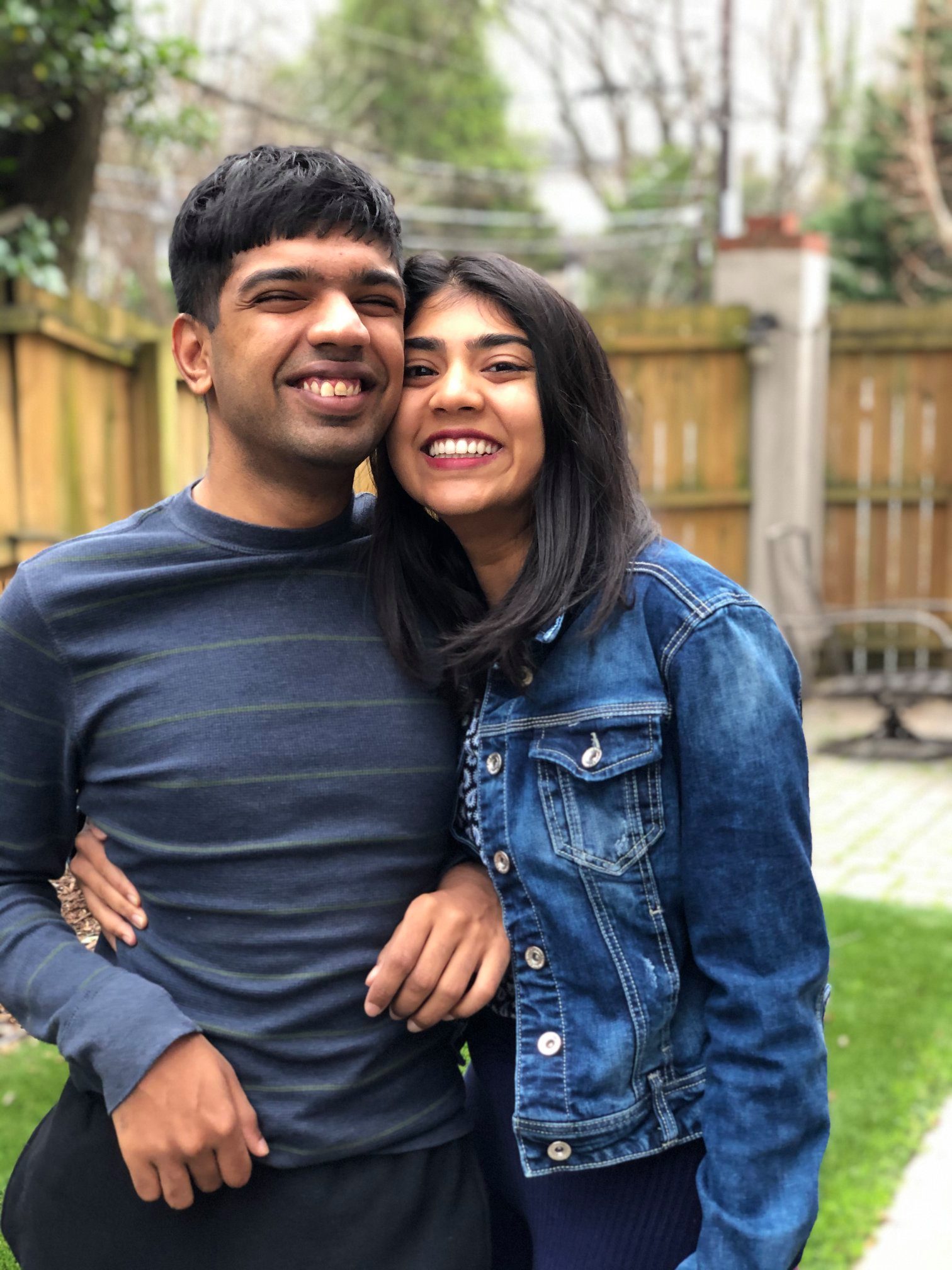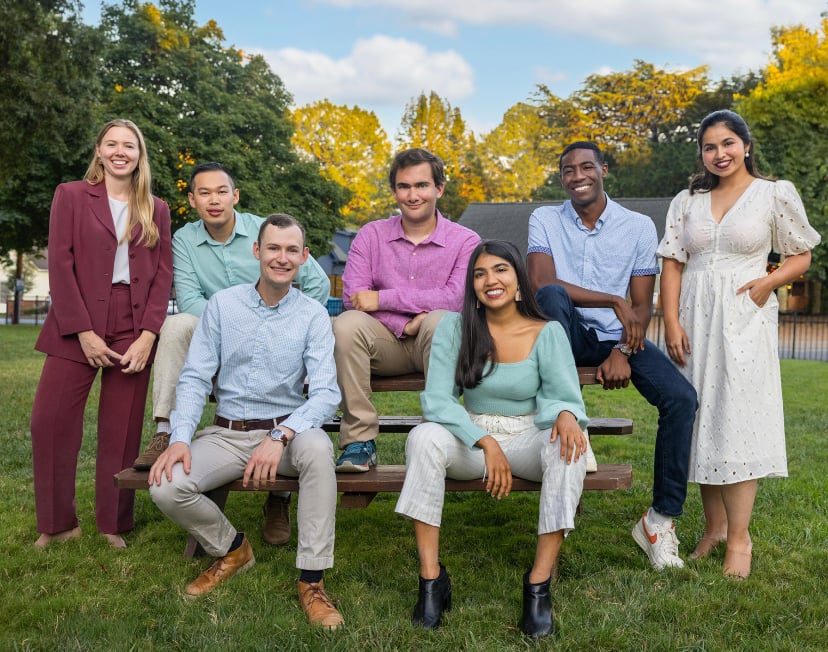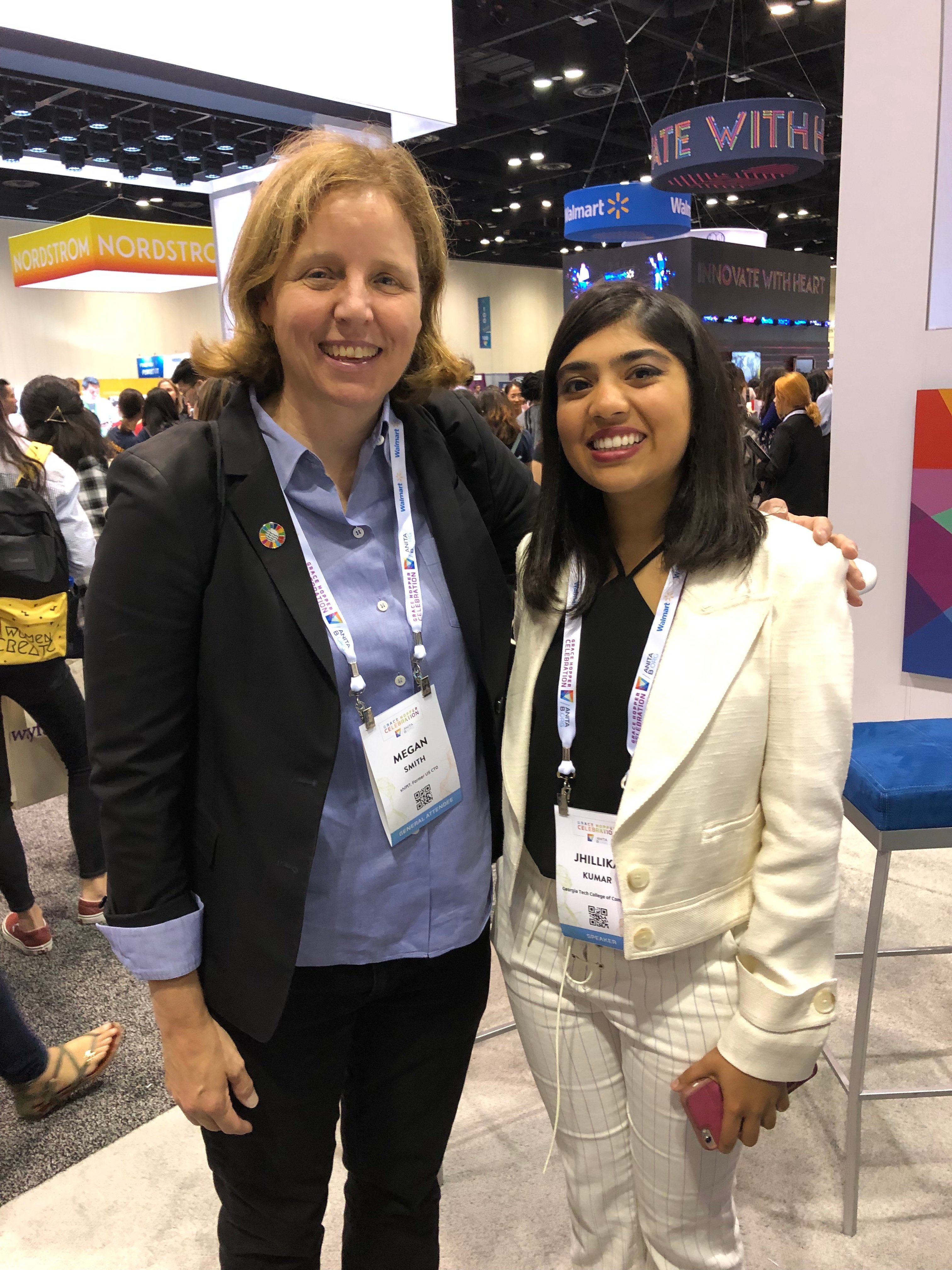Name Dropping is a Q&A series that aims to elevate the stories of leaders who identify as women or nonbinary leading in the tech space. The idea came from Angela DeFranco, a former VP of Product at HubSpot, who said one way to be better allies is to name drop underrepresented voices in discussions of achievement, inspiration, and disruptors in tech, instead of referencing, time and again, the same set of (often male) leaders.
This edition of Name Dropping features Jhillika Kumar, Founder of Mentra, a neurodivergent-friendly talent platform that intelligently matches neurodiverse individuals with employers that value their strengths.
Describe your journey as a young entrepreneur and woman in tech with a start-up that serves a large underserved population. What inspired you to follow this path, and what have been the biggest challenges you have encountered?
My brother is the force of inspiration in my life. I grew up as the little sister of a non-speaking (or traditionally “non-verbal”) autistic individual named Vikram. Because of his disability, he has never been able to speak a word in his life. While I had the opportunity to receive an education, and travel to the United States for college and find a job, I always questioned why my brother couldn’t have the same opportunities as me: why are classrooms, workspaces, policies, and societies exclusionary towards those who are different? Why does society force him to change, when it is the responsibility of institutions to cater to the entire human population, across all spectrums of abilities and disabilities?
 Jhillika Kumar with her brother, Vikram.
Jhillika Kumar with her brother, Vikram.
At the age of 27, my family experienced a miracle. After 6 months of intensive daily classes, my brother Vikram learned how to communicate words for the first time using a letterboard. I was blown away by the realization that he'd been silently observing the world for so long with so much to say. Uncovering his incredible potential lit the spark in me to raise my voice and found a company called Mentra, to advocate for people with neurological disabilities and open doors for them to enter the workforce, and leave their mark on the world.
What advice can you provide to other women and non-binary individuals seeking to follow in your footsteps to develop accessible technology?
As people who are underrepresented, we have a unique lived experience that we can tap into in order to serve a community greater than ourselves. The foundational principles of universal design require us to see the world from the eyes of our users across a spectrum of abilities and advocate for their needs in the product-development life cycle. In the process, we as women and non-binary individuals can allow for our compassion and user-empathy to shine through in the work that we do.
The best part: by making technology accessible and usable to 1 in every 7 people that have a disability, we are not only lowering the barriers to careers and opportunities, we are also empowering an entire generation to make universal inclusion the new norm.
Once actualized for the masses, technology can act as an extension of human capability and human potential. I truly believe that if maximized for the betterment of humanity, technology can be a huge equalizing factor. While it is not the only solution, it is the path to get there; by designing for those who lack the resources and socioeconomic mobility, we can empower them to navigate the technology-driven world, and find personal liberation.
It’s quite clear that global trends are shifting as we realize that the greatest innovations often lie in the hands of the most privileged, primarily within developed countries. There is so much untapped opportunity, not just in terms of digital accessibility, but also in terms of economic accessibility —serving populations across India, Africa and beyond. To drive equality on an international scale, thinking about how we can make technology more accessible for the underprivileged is imperative.
When it comes to accessibility such as dark mode, font sizes, etc., do you think greater responsibility should be placed on the operating systems and browsers instead of every individual business that spins up an app or website?
When the “big guys” push, everyone learns and everyone benefits.
Companies like Apple and Microsoft have immense power to lay the foundation of accessibility for individual businesses to build on top of. However, it expands beyond just tech. Industries from the energy sector to manufacturing to banking to hospitality should all be thinking about how they can use their resources to educate others, build training, and influence policy level changes. At the end of the day, if we are trying to instill a culture shift across a global population, everyone should take some level of responsibility for being inclusive and thinking about the broader population that they're serving.
Microsoft, for example, has done a phenomenal job from the leadership level as Satya Nadela’s personal experience with his son with cerebral palsy has trickled into all their products; all their tools ranging from PowerPoint to Outlook have a plethora of accessibility features. They’ve even taken it so far as to integrate AI to learn from human behavior — one example is vision detection features to automatically label images and generate alt-tags. Even the federal government in the US mandates that grants opened up to the public must have only accessible documentation submitted to them.
Mentra is a neurodivergent-friendly talent platform that intelligently matches neurodiverse individuals with employers that value their strengths.” How do you envision the future of your start-up?
Mentra’s mission is to tap into the potential of every single human being on the planet, regardless of ethnicity, gender, or cognitive ability. One day, I hope that I can see a world where a company wouldn't discriminate against my brother just because he's not able to speak, or because he needs a social support system around him to facilitate his work. My dream would be for a company to instead respect him for the unique talent that he has, and to understand his potential and the impact that he has and can make in the world.
If companies can foster an environment where autistic individuals can thrive, it’s a true ripple effect: because then the larger neurodiverse community can thrive, then people with disabilities can thrive. And then the entire world is just thriving. Because you have so much innovation, you have so many different life experiences being brought to the table, and you have products that are being created that include everyone.
So that is the ripple effect that we hope to create across the world with Mentra— by placing neurodiversity at the core of recruiting in a way that scales, and bring the human back into hiring. A big part of making the change we see in the world is having a team internally that reflects the workforce that we aspire to build. Our team is entirely neurodiverse — we have several leaders of our organization that are on the autism spectrum. Incorporating those voices is important to everything that we do; as the quote goes, “Nothing about us, without us”— that is essential.
Could you share one of the biggest accomplishments from the past year for your startup that you're really proud of?
We are so excited that our team at Mentra had two big breakthroughs this past year.
The first is that we were awarded by Microsoft’s AI for Accessibility team and featured on the homepage of their website as the project of 2022 focused on advancing employment for people with disabilities. We applied and pitched to several LinkedIn AI engineers, as well as Microsoft's accessibility advocates. We were judged based on how accessible our platform is, how we are accounting for anti-bias in our AI models, and how reliable our technology is in tapping into the vast potential of people with disabilities. We're really excited to take all of the momentum and jump into 2022 and expand the hiring landscape to be inclusive of the Neurodiverse, together with Microsoft.
The second milestone is that Mentra’s solution was named the most innovative solution to solve the #DisabilityDivide by the Biden administration. After Mentra participated in a 3-Phased Federal Challenge by the Administration of Community Living, the team presented to over 100+ advocates across the Department of HHS. The main criteria we were judged against for this Federal challenge was: is the model scalable, is the model replicable, and is the model sustainable. After competing against 60 organizations and being selected as the Grand Prize Winner, we know that we can now scale this platform across the entire country, to all 50 states
The team is beyond excited to take this momentum and jump into 2022 with a splash!
 Jhillika Kumar with members of the Mentra team.
Jhillika Kumar with members of the Mentra team.
What is a quote that inspires you, and why?
A quote that I love is by Justine Musk. She says, “Shift your focus away from what you want and get deeply, intensely curious about what the world wants and needs. Ask yourself what you have the potential to offer that is so unique and compelling and helpful that no computer could replace you, no one could outsource you, no one could steal your product and make it better and then club you into oblivion (not literally). Then develop that potential. Choose one thing and become a master of it. Choose a second thing and become a master of that…”
Justine goes on to say that this will give you a competitive advantage “because you can move between worlds, speak both languages, connect the tribes, mash the elements to spark fresh creative insight until you wake up with an epiphany that changes your life.”
Who’s one woman or nonbinary person in technology you’d like to name drop and why?
The person I'm going to name is Megan Smith, who was the third Chief Technology Officer of the United States under the Obama Administration, Vice President of Google[x] and currently the CEO of Shift7. I had the honor of meeting her backstage when I was giving the keynote speech at the Grace Hopper Conference in 2019.
 Megan Smith (L) and Jhillika Kumar (R)
Megan Smith (L) and Jhillika Kumar (R)
Her presence was incredible as I remember she was reciting a poem about artificial intelligence straight from memory. She is a female leader who is so well spoken and really embodies that idea of “moving between worlds”— from bringing poetry and AI together that day, to empowering young entrepreneurs, to serving in the nation’s federal government! Just an awesome person all-round.
Last question, just for fun: if you could only eat one food for the rest of your life, what would it be?
I'm going to say two things here. After years of perfecting an ideal breakfast blend, my current staple every morning is my favorite brand of muesli made in New Zealand, with blueberries and kefir (a substitute for milk with lots of probiotics!). I could never get tired of having this healthy treat every morning.
My second food would be kale — this is going to sound really weird, but I’m pretty sure 60% of my body is made of kale. At first, I couldn't stand it. But when I switched my diet to pescatarian, I started to eat kale in salads with dressing, in soups, and it grew on me. Now, I love to have it every day.
Know another woman or nonbinary person whose name we should drop? Tweet us at @HubSpotLife with ideas.
Interested in working with people who care about thoughtful leadership? Check out our open positions and apply.
